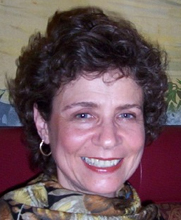 |
||||||||||||||||||||||||||||||||||||
|
||||||||||||||||||||||||||||||||||||
|
||||||||||||||||||||||||||||||||||||
|
|
||||||||||||||||||||||||||||||||||||
|
Questions & Answers - May 2004
Dear Mary, Dear Reader, Sometimes there isn't an easy answer but constant reassurance and validation will help. For example, tell her that you, too, are concerned about how expensive it is to feed many people and offer to "help". This is not buying into her delusion but validating the anxiety she feels. Also ask her where she is and who "they" are. Does she think she's at home and responsible for them? What in her history would make her think this way? It may go back to early childhood and the depression era. If she absolutely refuses to go out, let her be. Forcing her will create more anxiety and behavior issues. Increasing her medication even more or changing it is of course an option, but she may have side effects like sedation and dizziness, setting her up for falls. The activity director should be able to suggest activities that will make her feel useful which she can do one-on-one with you or the staff. * * * Dear Mary, Most days it's so hard to figure out which way to go. My husband has had to retire and doesn't know what to do with him self. He needs instructions for just about everything and I feel so overwhelmed. I am disabled my self and feel like I'm paddling against the tide, alone, with my responsibilities. Do you hear of many others in similar circumstances? I'm coping as best I know how but feel there must be a better way of doing things. Do you have any suggestions that may help? Thank you for your ear. My heart goes out to you. If you haven't done so, please call your local Area Agency on Aging and inquire about services available not only to help you with caregiving responsibilities but also with your disability. There are programs that provide for home care and respite (time off). One of them is the National Family Caregiver's Support Program. Request a home evaluation, too, to help secure services and guide you with future planning. It would also be helpful to share your problems with other caregivers. You can find a support group in your area by again calling the Area Agency on Aging or the Alzheimer's Association at 1-800-272-3900 or www.alz.org. Dear Mary, I am living with guilt because I hate to visit her in the nursing home. She was not an outwardly loving mother and never told me she loved me, but I gave her everything I had. Some days when I visit she knows me, on other days there is an empty look that just kills me. I was going daily but it was to taking a toll on me. I now go about two or three times a week but on those days I wake up with dread. Is this normal? Sometimes I wonder if she will out live me. Do you have any words of advice? You have been through a lot and given your best. The last insult is that your mother doesn't recognize you and the little child in you is screaming for acknowledgement and love. Yet, the rational adult in you expects to be the dutiful loving daughter regardless of the past. So, yes, the turmoil you are feeling is normal but your emotional health is in trouble. It is good that you have cut back on your visits but you must do more. I strongly encourage you get counseling. Caregiving for one person is a difficult task but you are caring for many - the little child, adult, and lost soul, as well as your husband and marriage. Counseling will give you an outlet for venting and help you heal. The past cannot be changed, but you can learn to live with it in peace. * * * Email Mary: info@gero-resources.com It is illegal to reprint articles, in any format (including emails, websites, etc.), without explicit written permission from the author of this article and / or Empowering Caregivers™ |
||||||||||||||||||||||||||||||||||||
|
||||||||||||||||||||||||||||||||||||
|
EMPOWERING CAREGIVERS™ is trademarked. All Information on this website is owned by Gail R. Mitchell. This includes but is not limited to the journal exercises, Newsletters and original articles, etc. Permission must be obtained from Gail R. Mitchell for any external use of this material.
© Copyright Gail.R. Mitchell. All rights reserved. |
||||||||||||||||||||||||||||||||||||
